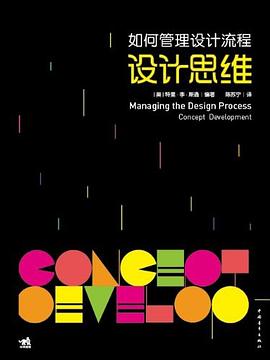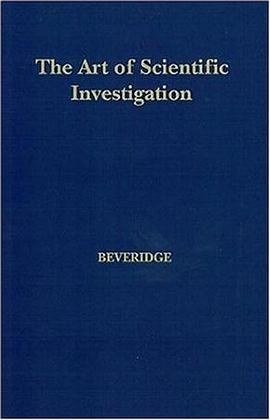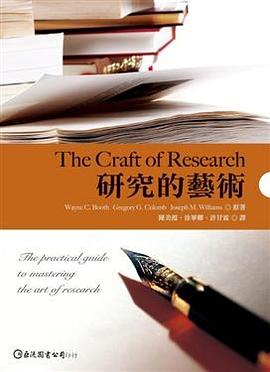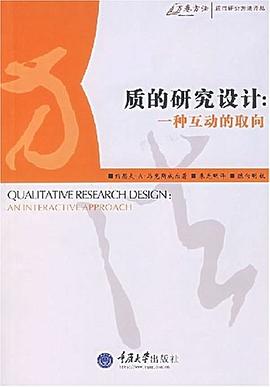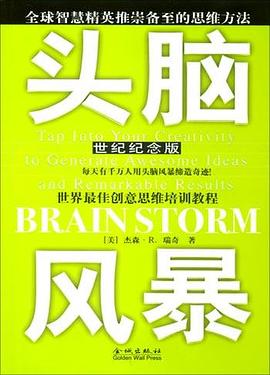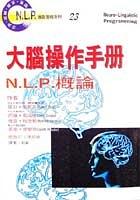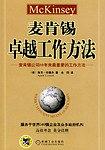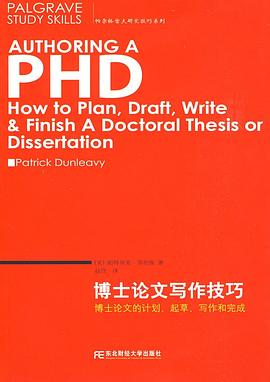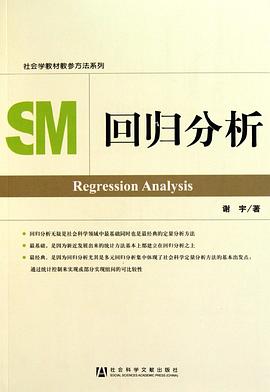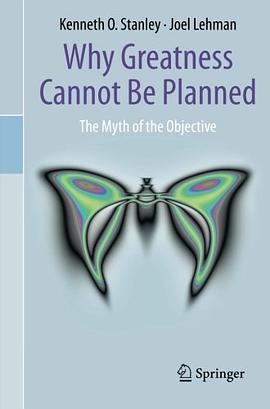

具体描述
Why does modern life revolve around objectives? From how science is funded, to improving how children are educated -- and nearly everything in-between -- our society has become obsessed with a seductive illusion: that greatness results from doggedly measuring improvement in the relentless pursuit of an ambitious goal. In Why Greatness Cannot Be Planned, Stanley and Lehman begin with a surprising scientific discovery in artificial intelligence that leads ultimately to the conclusion that the objective obsession has gone too far. They make the case that great achievement can't be bottled up into mechanical metrics; that innovation is not driven by narrowly focused heroic effort; and that we would be wiser (and the outcomes better) if instead we whole-heartedly embraced serendipitous discovery and playful creativity.
Controversial at its heart, yet refreshingly provocative, this book challenges readers to consider life without a destination and discovery without a compass.
作者简介
Kenneth O. Stanley and coauthor Joel Lehman are both experienced artificial intelligence researchers whose scientific discoveries led to the insights in “Why Greatness Cannot Be Planned.” Stanley, an associate professor at the University of Central Florida, has published over 80 peer-reviewed articles (10 of which have won best paper awards) and is regularly invited to speak at venues across the world. Lehman is currently a post-doctoral fellow at the University of Texas at Austin. In August 2015 he begins as an assistant professor at the IT University of Copenhagen.
目录信息
读后感
评分
评分
评分
评分
用户评价
计算机外行。读了几章。复杂体系不是简单能用目标导向计划出来的,这是作者们是在本身AI领域的工作里感受到的,他们试图把这种思路分享给过份乐观的同行们。可惜作者们还试图推演到一般生活领域,就暴露了他们在其它领域的知识薄弱(虽然他们旁征博引了大量人文例子)。而其中涉及专业部分,又因为作者聚焦在思维方法上,显得寡淡。另外其中一个人讲的基于选择的演化算法,很像现在流行的头条,快手在使用的那种。
评分计算机外行。读了几章。复杂体系不是简单能用目标导向计划出来的,这是作者们是在本身AI领域的工作里感受到的,他们试图把这种思路分享给过份乐观的同行们。可惜作者们还试图推演到一般生活领域,就暴露了他们在其它领域的知识薄弱(虽然他们旁征博引了大量人文例子)。而其中涉及专业部分,又因为作者聚焦在思维方法上,显得寡淡。另外其中一个人讲的基于选择的演化算法,很像现在流行的头条,快手在使用的那种。
评分If you do not know how to achieve greatness, then planing is meaningless. You should just focus on novelty, and wish you would achieve greatness by chance. If you do know how to achieve greatness, then chances are that greatness is not great at all. (Exception not covered by the book: you know how to achieve greatness, while others do not know.)
评分计算机外行。读了几章。复杂体系不是简单能用目标导向计划出来的,这是作者们是在本身AI领域的工作里感受到的,他们试图把这种思路分享给过份乐观的同行们。可惜作者们还试图推演到一般生活领域,就暴露了他们在其它领域的知识薄弱(虽然他们旁征博引了大量人文例子)。而其中涉及专业部分,又因为作者聚焦在思维方法上,显得寡淡。另外其中一个人讲的基于选择的演化算法,很像现在流行的头条,快手在使用的那种。
评分If you do not know how to achieve greatness, then planing is meaningless. You should just focus on novelty, and wish you would achieve greatness by chance. If you do know how to achieve greatness, then chances are that greatness is not great at all. (Exception not covered by the book: you know how to achieve greatness, while others do not know.)
相关图书
本站所有内容均为互联网搜索引擎提供的公开搜索信息,本站不存储任何数据与内容,任何内容与数据均与本站无关,如有需要请联系相关搜索引擎包括但不限于百度,google,bing,sogou 等
© 2025 book.quotespace.org All Rights Reserved. 小美书屋 版权所有



